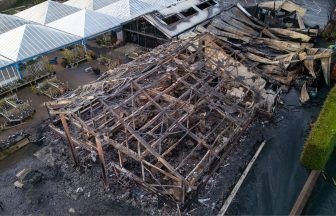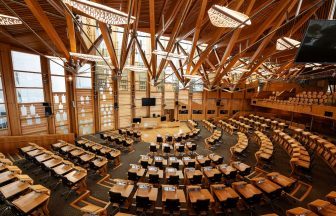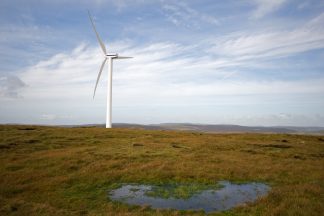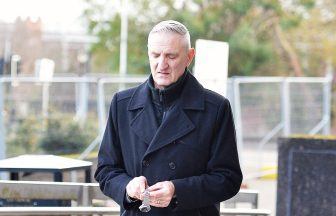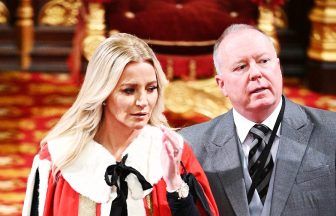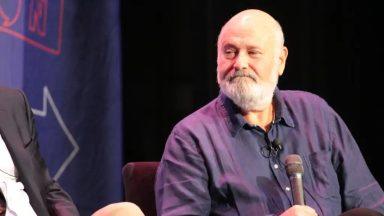Appeal judges have upheld a decision to stop the construction of a wind farm which would “adversely” affect the natural beauty surrounding a “historic” Scottish village.
Lawyers acting for NLEI Ltd have failed to persuade judges at the Inner House of the Court of Session to overturn a ruling made last year by colleague Lord Ericht.
The firm originally went to the Edinburgh-based civil court following a decision made by the Scottish Government in January last year.
The Scottish Ministers refused to give the go ahead to a wind farm to be built on the Queensberry estate near Crawfordjohn, South Lanarkshire and Sanquhar in Dumfries and Galloway.
The ministers had received a report from a reporter which recommended the proposal, which would see the construction of 35 turbines built on land owned by the Duke of Buccleuch, be rejected.
The reporter concluded that the proposed site was located close to three local scenic and special landscape areas and was located close to Wanlockhead – Scotland’s highest village.
Wanlockhead – which is located in the Lowther Hills has its origins in the Roman era – the settlers exploited lead and mineral era.
It is located at an elevation of 466 metres (1,531 feet). It became known as “God’s Treasure House” as zinc and copper were found there. Some of the world’s purest gold, at 22.8 carats, was found locally and used in the Regalia of the Scottish Crown.
The Court of Session heard the reporter concluded the scheme would have an “impact on the land scape and historic setting of Wanlockhead.”
The Scottish Government adopted the reporter’s conclusion and refused to give the go ahead to the scheme.
This resulted in lawyers going to the Court of Session to appeal the decision.
Lord Ericht was told that the reporter failed to follow correct legal procedures in their decisions.
The judge heard that the reporter failed to understand planning legislation. Lord Ericht was told the reporter wrongfully assigned the firm a duty to comply with planning laws.
The court heard that the duty was that NLEI had a duty to mitigate damage that its scheme may have on surrounding landscapes.
The firm’s legal team said that planning laws showed that the company didn’t have a status under legislation which compelled it to have this duty.
They argued that the eventual decision made by the Scottish Government was unlawful because the reporter had made this error.
Lord Ericht agreed with the submission made by the legal team. But he concluded that the mistake made by the reporter wasn’t so great as to make the Scottish Government’s decision unlawful.
This prompted the lawyers to lodge an appeal at the Inner House of the Court of Session. They argued that Lord Ericht’s decision was incorrect.
However, in a judgment published by the court on Friday, judges Lord Carloway, Lord Malcolm and Lord Woolman upheld their colleague’s decision.
Lord Carloway, who gave the court’s judgment, wrote that the Scottish Government were entitled to conclude that the scheme couldn’t go ahead due to the adverse impact on the scenery.
He wrote: “The Lord Ordinary correctly concluded that the reporter’s error.. was not material.
“The application was refused because it gave rise to adverse landscape and visual impacts and would adversely affect the historic setting of Wanlockhead.
“The court agrees with the petitioners’ general proposition that, where there has been an identifiable error on the part of a decision-maker, the court should be slow before deciding not to quash that decision.
“However, in order to merit reduction of the resultant decision, the error must be a material one, in the sense that, had it not been made, the decision might have been different.
“The question is whether these errors were material to either the recommendation or the decision.
“Had they not been made, was there a real possibility that the recommendation and decision would have been different? “The Lord Ordinary held that the error made no difference. The court agrees.”
Follow STV News on WhatsApp
Scan the QR code on your mobile device for all the latest news from around the country


 iStock
iStock

